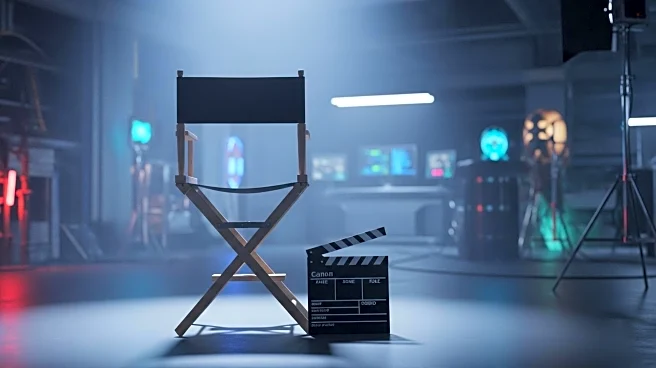What's Happening?
Ice Cube recently discussed his experience filming the pandemic-era reboot of 'War of the Worlds,' where he portrayed government computer analyst Will Radford. The film, directed by Rich Lee, was shot in 2020 during the height of the pandemic, which necessitated unique filming conditions. Ice Cube revealed that he filmed his scenes in isolation, without the presence of a director or other actors, due to social distancing measures. The movie was completed in 15 days, using footage from real surveillance cameras worldwide, which contributed to its delayed release. The film premiered on Prime Video on July 30, 2025, after being sold by Universal to Amazon Prime.
Why It's Important?
The unconventional filming approach of 'War of the Worlds' highlights the impact of the COVID-19 pandemic on the entertainment industry, showcasing how filmmakers adapted to restrictions. This method reflects broader changes in film production, where technology and remote collaboration became essential. The film's release on a major streaming platform like Prime Video underscores the shift towards digital distribution, which has become increasingly prevalent. The adaptation of H.G. Wells' classic novel in a screen-based format also illustrates the evolving nature of storytelling in response to contemporary challenges.
What's Next?
The release of 'War of the Worlds' may influence future film projects, encouraging filmmakers to explore innovative production techniques and distribution models. As streaming services continue to dominate the market, traditional studios might increasingly partner with digital platforms to reach wider audiences. The film's reception, currently holding a low critic rating, could prompt discussions on the effectiveness of such experimental approaches in storytelling and their appeal to audiences.
Beyond the Headlines
The film's reliance on surveillance footage raises ethical questions about privacy and the use of real-world data in entertainment. This approach may spark debates on the boundaries of creative expression and the responsibilities of filmmakers in handling sensitive information. Additionally, the adaptation of a classic novel in a modern context invites cultural reflections on how historical narratives are reinterpreted to resonate with contemporary audiences.









